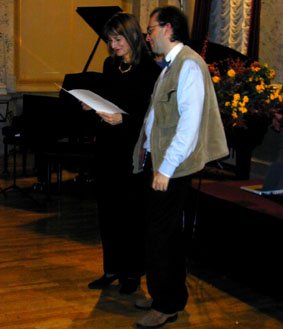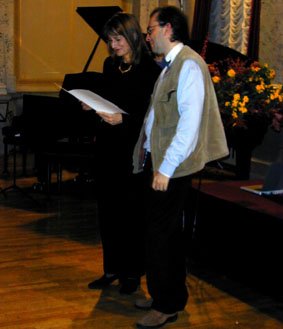Adaptive Optics for Large Telescopes at the MPI for Astronomy
Wolfgang-Paul prize winner (award winner), Roberto Ragazzoni, is coming to Heidelberg
The Max Planck Institute for Astronomy (MPIA) in Heidelberg has recently initiated the project “adaptive optics for large telescopes” – a project at the forefront of the development of optical equipment. Sharp, high-resolution images of very distant radiation sources are the most important target of observational astronomy. The larger the telescopes are, the higher their theoretical optical resolution. Therefore, ground-based telescopes with 8 to 10 m apertures are being built today at internationally leading research centres. The MPIA has a significant participation in the Large Binocular Telescope (LBT) on Mount Graham in Arizona, which will be the most powerful single telescope in the world. It is a kind of a double telescope with two mirrors of 8.4m diameter each fixed on a common mount. The European Southern Observatory (ESO) also operates four large telescopes with 8.2m aperture each on Cerro Paranal in the Chilean Andes. For these telescopes, the MPIA is developing extremely complex camera systems.
Of course, the turbulence of the Earth’s atmosphere leads to twinkling of star-light and blurring of images generated at the telescope. Only the intricate technology of adaptive optics enables the compensation of atmospheric fluctuations by constantly measuring the image distortions and their removal by means of computer-controlled, easily deformable mirrors integrated in the beam: the image is “sharpened”.
Today, the best scientists and technicians in the world are involved in the development of adaptive optics for large telescopes. The MPIA has succeeded in bringing Dr. Roberto Ragazzoni from the University of Padova to the institute: Dr. Ragazzoni has made excellent contributions to the rapidly evolving adaptive optics field. On November 6, 2001, he was awarded the Wolfgang Paul Prize – the most highly endowed scientific prize in Germany, jointly awarded by the Federal Ministry for Education and Research (BMBF) and the Alexander-von-Humboldt Foundation. Dr. Ragazzoni will be awarded 4 million DM for his research at the MPIA: These funds will be used for the development of an adaptive optics system for the Large Binocular Telescope over the next three years.
Adaptive optics is not only important for basic research in astrophysics – it will open up new opportunities in many other areas, among others in life science. Therefore, research in the adaptive optics field is not only done at the MPIA, but also at the university of Heidelberg (for instance, at the Institute for Applied Physics), at the state observatory and the MPI for Biomedical Research. Thus, Heidelberg will become one of the most important research centres in this field.

